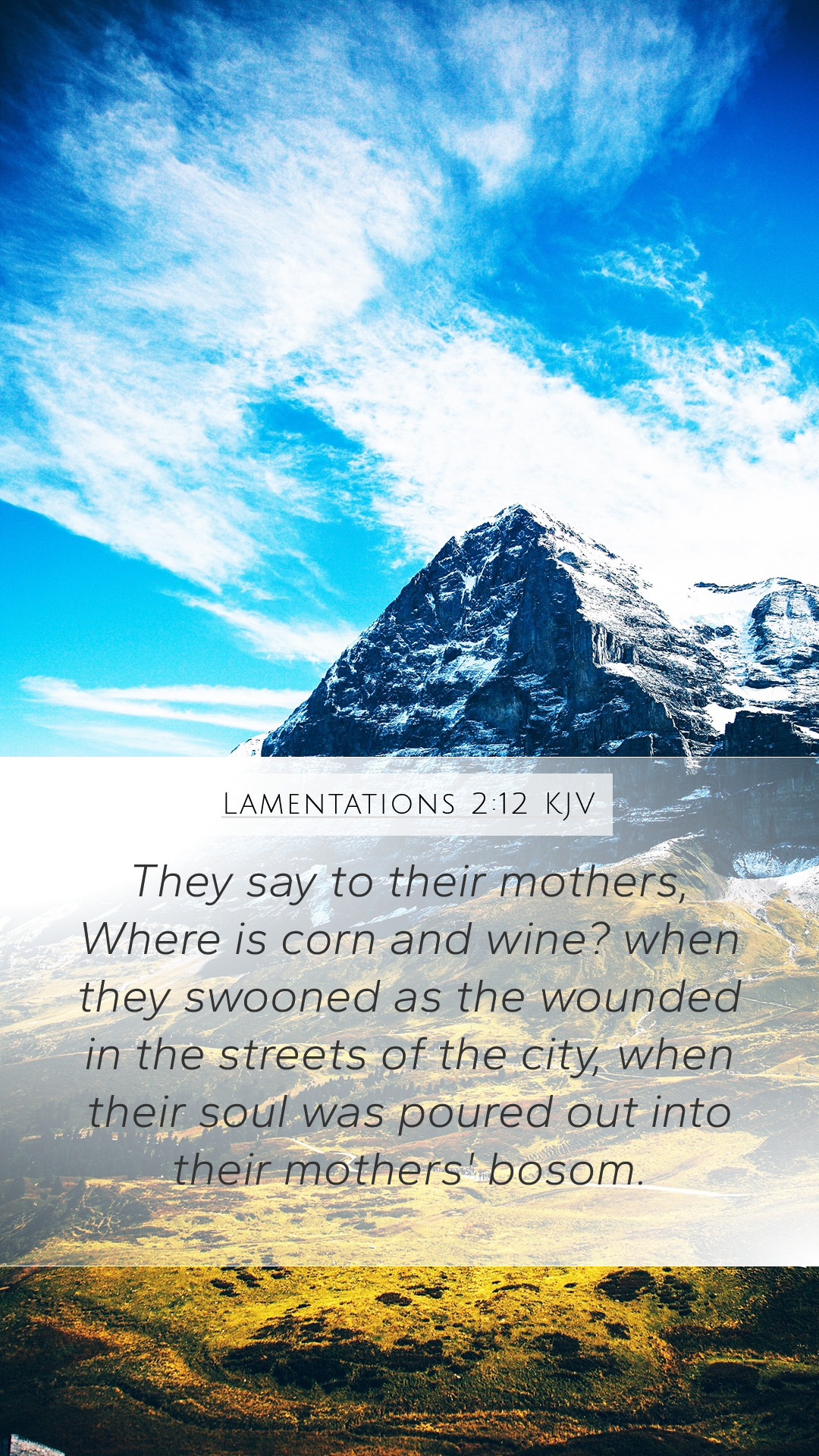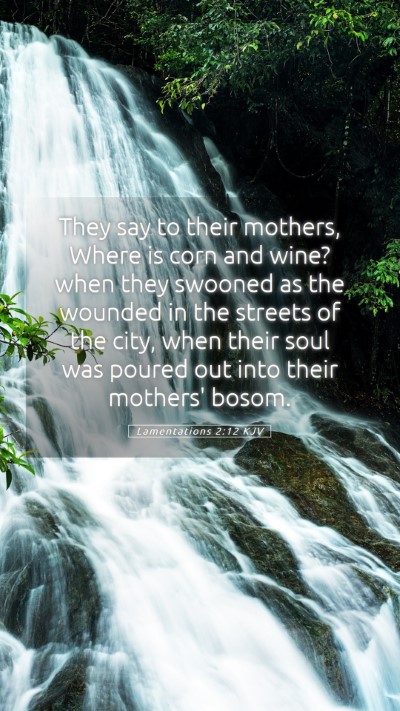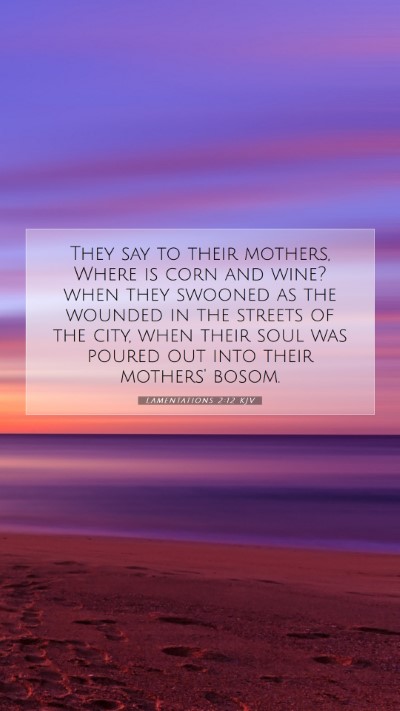Lamentations 2:12 - Bible Verse Interpretation and Commentary
Verse: Lamentations 2:12 - "They say to their mothers, 'Where is grain and wine?' as they faint like wounded men in the streets of the city, as their lives ebb away in their mothers' arms."
Understanding This Verse
The verse from Lamentations 2:12 articulates the profound anguish and despair faced by the people of Jerusalem following its destruction. It vividly depicts children, possibly in a state of starvation and desperation, appealing to their mothers as they suffer. This powerful imagery highlights the emotional and physical devastation wrought by the calamities experienced by the city.
Main Themes
- Desperation and Suffering: The crying out of children for sustenance reflects the dire circumstances of a people who have lost everything.
- Motherhood and Protection: The mothers symbolize vulnerability, a stark contrast to their expected role as nurturers.
- The Effect of Sin: This situation serves as a lament for the consequences of straying from God’s path.
Bible Verse Commentary
In analyzing this verse, several public domain commentators provide valuable insights:
Matthew Henry's Commentary
Matthew Henry emphasizes the heart-wrenching condition of children who, in the midst of suffering, turn to their mothers for help and sustenance. He notes that their questions reveal the complete absence of resources in the besieged city, illustrating a painful reality of despair.
Albert Barnes' Notes on the Bible
Albert Barnes points out that this verse captures a moment of profound pain not just physically but emotionally, as mothers witness their children's suffering. Barnes highlights the cultural significance of food (grain and wine) in the context of family and community life in ancient Israel, further intensifying the lament.
Adam Clarke's Commentary
Adam Clarke interprets the cry of the children as a poignant reminder of the covenant community's brokenness. He reflects on the symbolism behind the images of famine and vulnerability, asserting that the children’s fainting represents the total depletion of hope within the community.
In-Depth Bible Verse Analysis
This passage invites the reader into a deeper reflection on the impact of national sin and the resultant divine judgment. It explains that the suffering depicted goes beyond mere physical hunger; it's representative of spiritual famine and societal collapse that results from turning away from God.
Historical Context
To fully grasp the meaning of Lamentations 2:12, one must consider the historical backdrop of the Babylonian exile, where Jerusalem was not only a physical city but also a spiritual beacon for God's people. The fall of Jerusalem led to complete desolation and evokes reflections on God’s justice and mercy.
Application in Daily Life
This verse serves as a sobering reminder of the consequences of neglecting spiritual and communal well-being. It challenges believers to care for those who are vulnerable in society and to recognize the importance of nurturing and providing for future generations.
Significance for Modern Readers
Lamentations 2:12 encourages modern Christians to engage in acts of compassion, seek out the downtrodden, and provide for those who are struggling. It questions us on how we are nurturing the faith and well-being of our communities.
Cross References
- Lamentations 1:11 - Depicts the suffering in similar terms.
- Deuteronomy 28:33 - Talks about the curse of famine among God's people.
- Jeremiah 14:3-4 - Refers to distress caused by drought and famine.
Further Study Resources
This verse can be used as a focal point for Bible study groups, encouraging discussions around themes of motherhood, suffering, and community responsibility. It’s particularly effective for online Bible study sessions and can be supplemented with additional Bible study tools for deeper understanding.
Conclusion
Through a combination of historical context, emotional resonance, and spiritual reflections, Lamentations 2:12 provides a profound opportunity for Bible study insights. Whether one seeks to understand, interpret, or apply this scripture, it bears rich layers of meaning that resonate throughout the ages.


